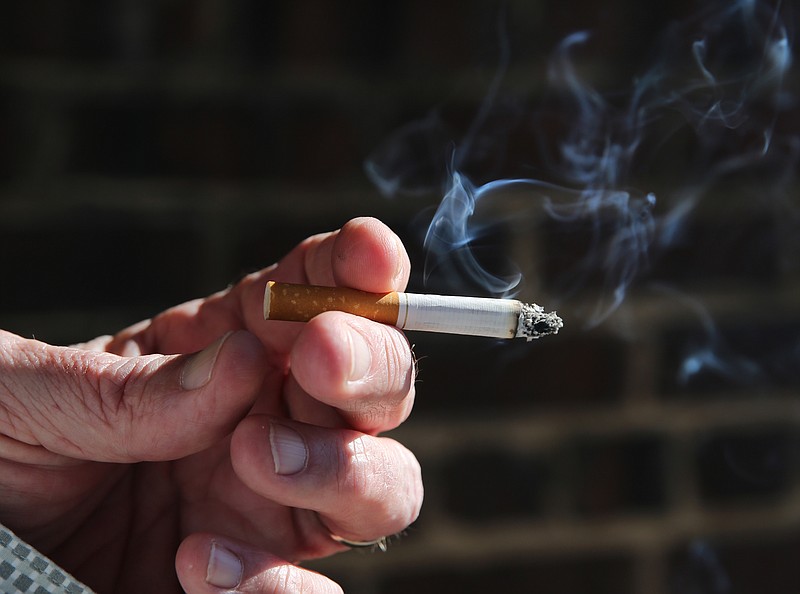We'd just as soon no one smoked tobacco products anywhere, but we don't believe that ban should be foisted upon individuals in their personal vehicles when carrying children.
We're not unaware of the dangers of the prolonged exposure of secondhand smoke in enclosed spaces, either, but we believe a law mandating such a thing is one step too far in curtailing personal freedoms.
A bill in the Tennessee Senate to do just that narrowly missed passing Wednesday and is likely dead for the year. However, given its one-vote failure, it's likely to come back in the next General Assembly.
Eight states and Puerto Rico already have laws against smoking in cars with children, though the ages of the children over which the bans were put in place range from 8 to 18.
The Tennessee proposal, sponsored by Sen. Richard Briggs, R-Knoxville, a physician, would have set the age at 14. Drivers found to be smoking with children 14 or younger in the car would have been given a warning. A second offense would have drawn a fine of $20 and court costs not exceeding $10. A third offense and all subsequent offenses would have cost the driver $50 and court costs not exceeding $10.
The act, though, would not have been a "primary offense," meaning police could not stop a car simply on a visual observance of someone smoking in a car with children. It also would have been classified a non-moving violation, meaning a citation would not have added points against the driver's record for the violation.
Gray areas like the violation not being a "primary offense" always worry us, though. Where one law enforcement officer might let such a visual sighting go, another officer who is an anti-smoking zealot might look for reasons to stop the car - going one mile above the speed limit, a hard-to-read license plate or failing to use a turn signal.
Briggs said he didn't want the fines to be punitive but did want the law to be educational about the effects of second-hand smoke. A supporter of the bill, Sen. Joey Hensley, R-Hohenwald, also a physician, went a little further. He called smoking in a car with children "child abuse."
We believe that last statement borders on hyperbole; nanny-state proposals like this will not stop smoking with children in cars. Indeed, one Tennessee senator sarcastically asked if banning sugary drinks or Twinkies was next, but given the erosion of personal freedoms in the U.S., we're not sure something like that won't happen over the next few years.
Three Southern states (Arkansas, Louisiana and Virginia) already have passed such bans, so we don't doubt the Volunteer State is not far behind. And we're not fooled about the health benefits of not smoking in cars with children. We simply believe it should be a personal - and wise - decision and not a government directive.
